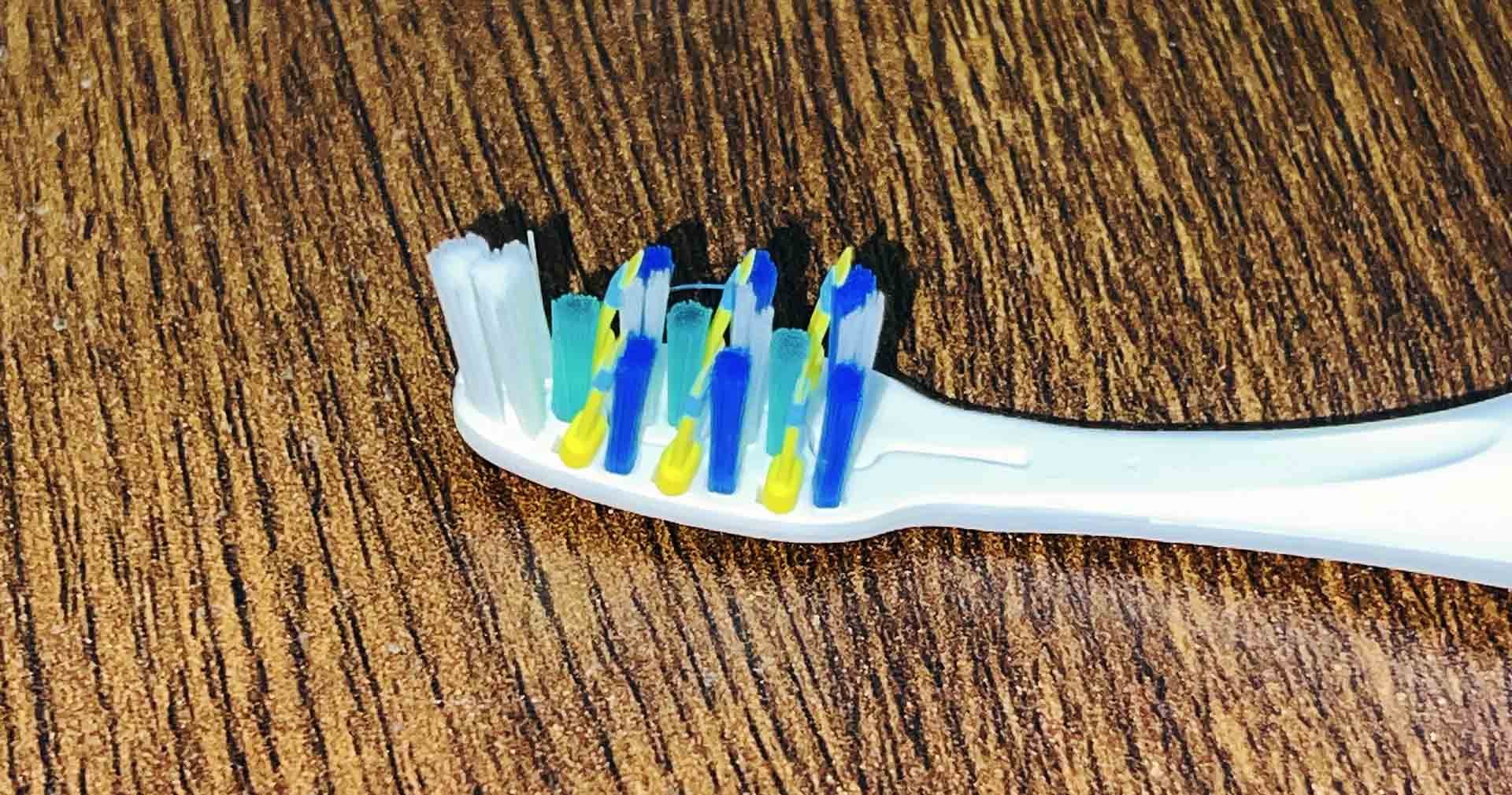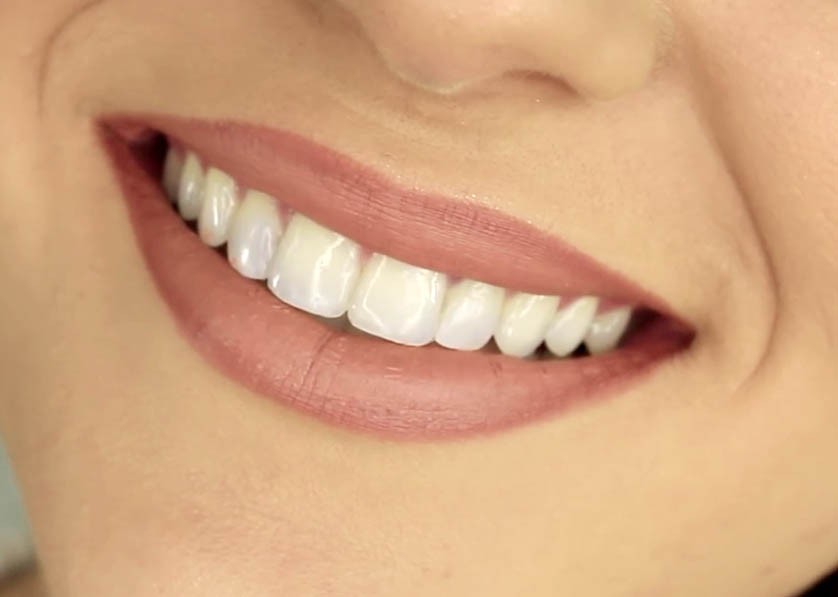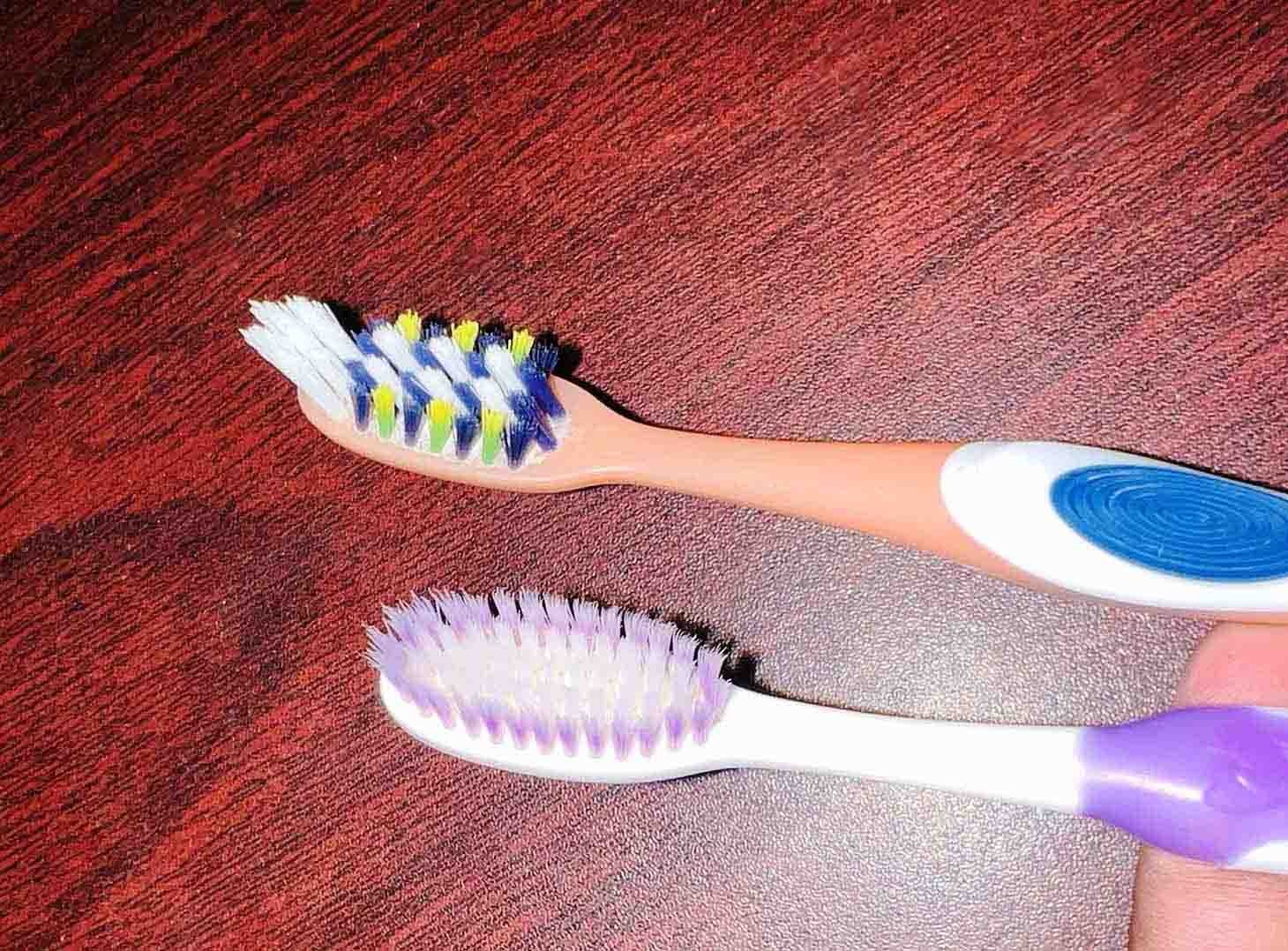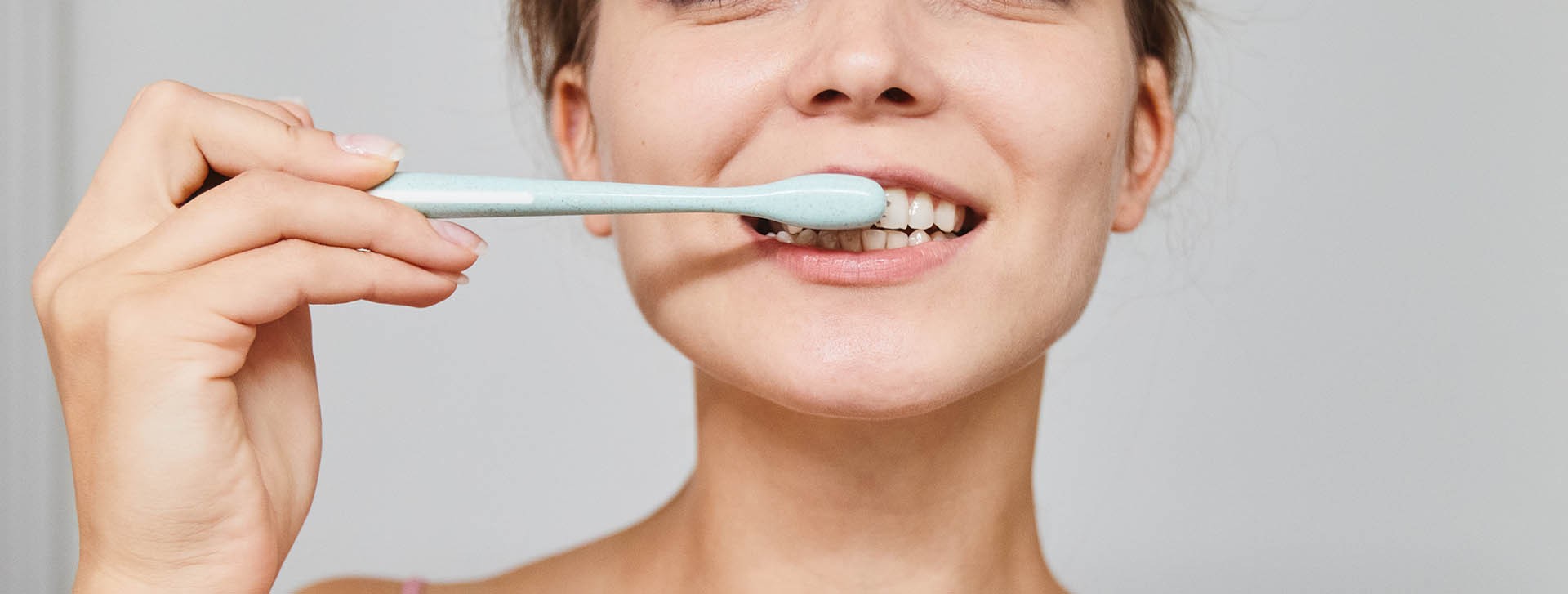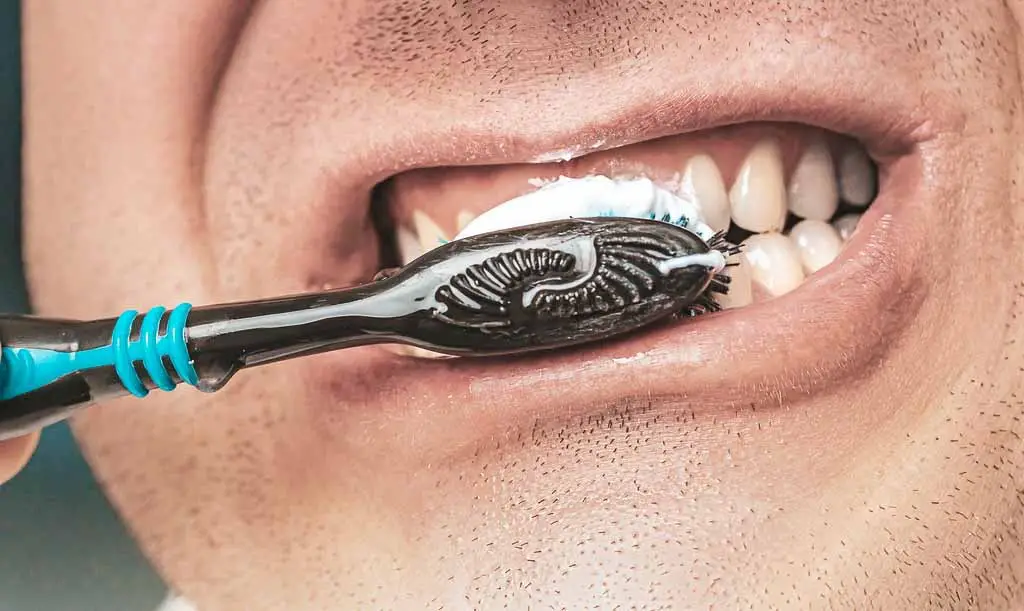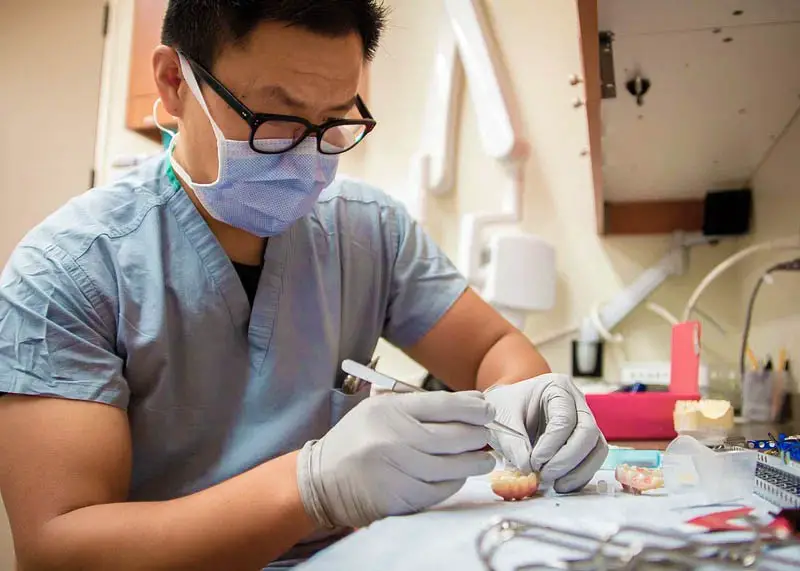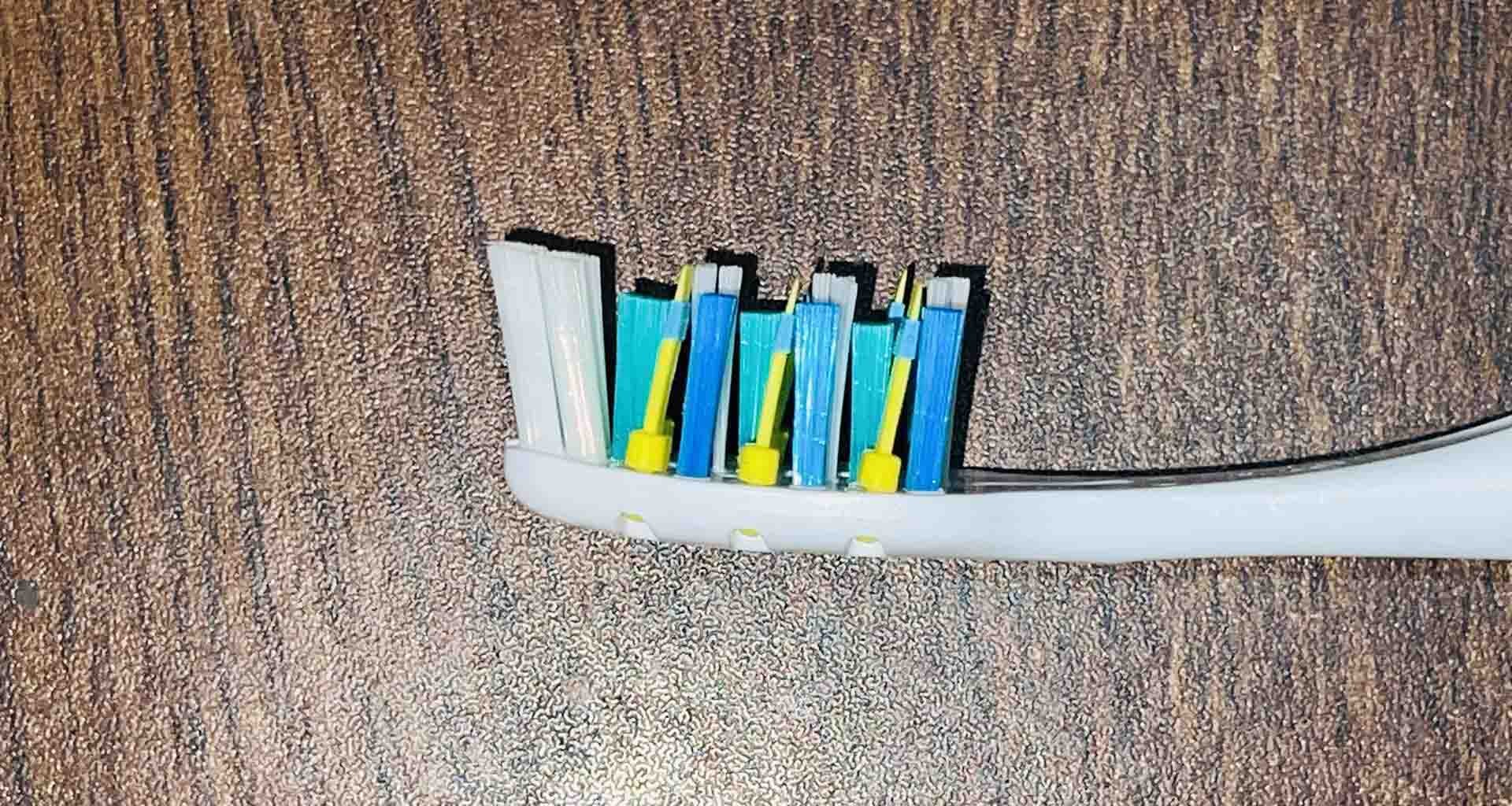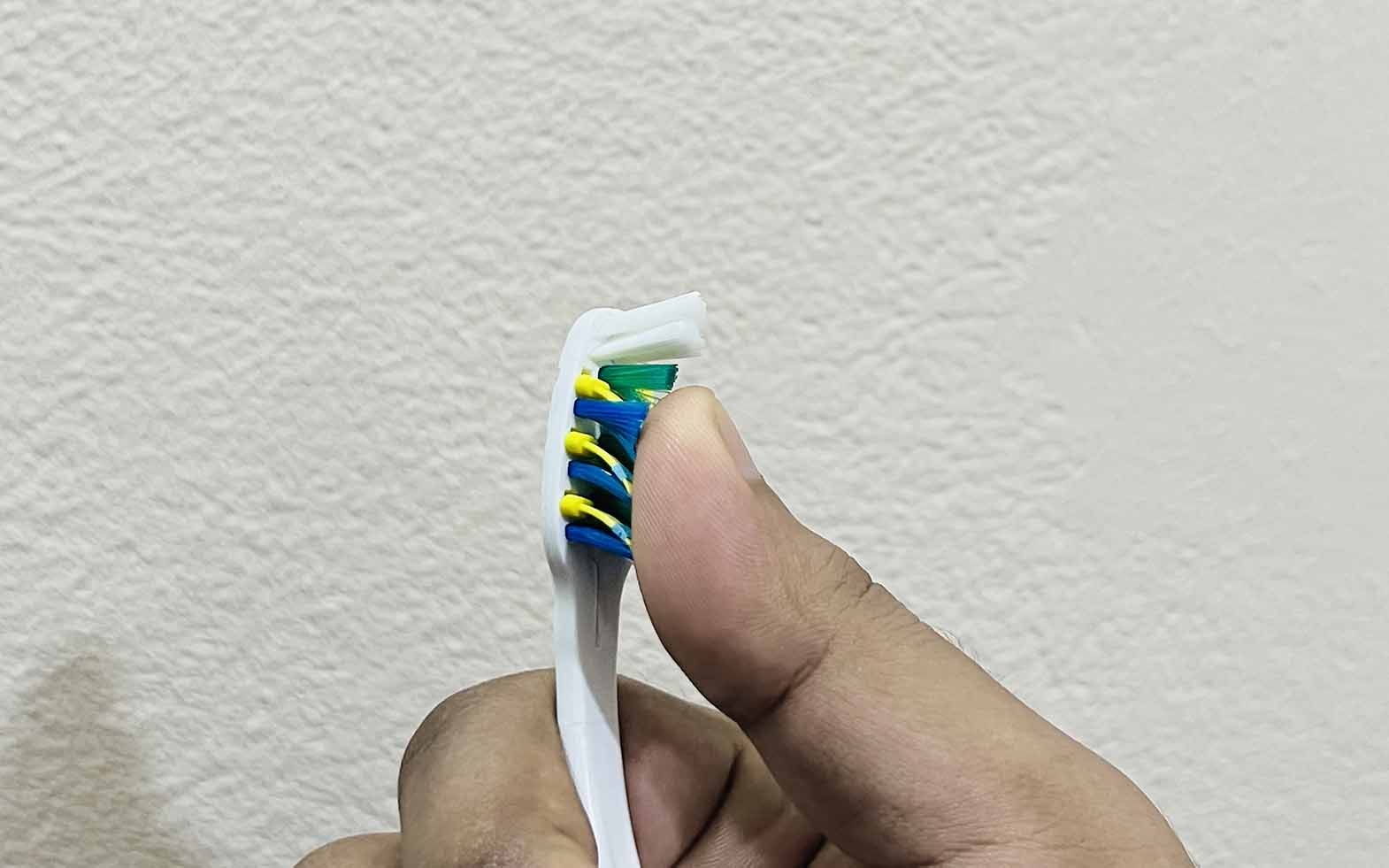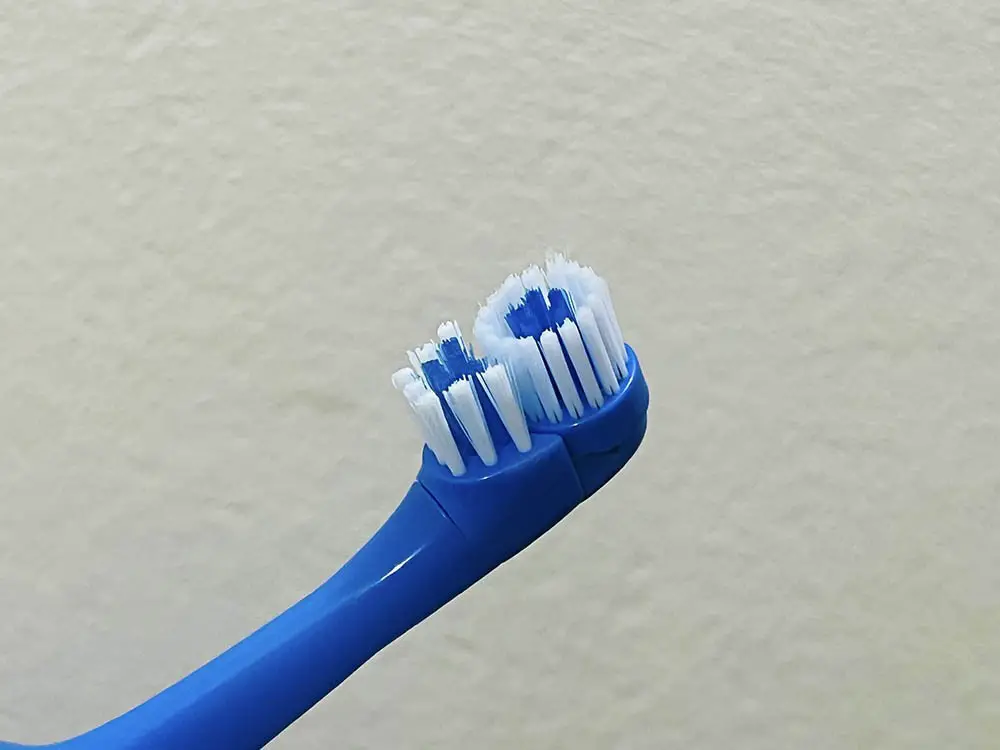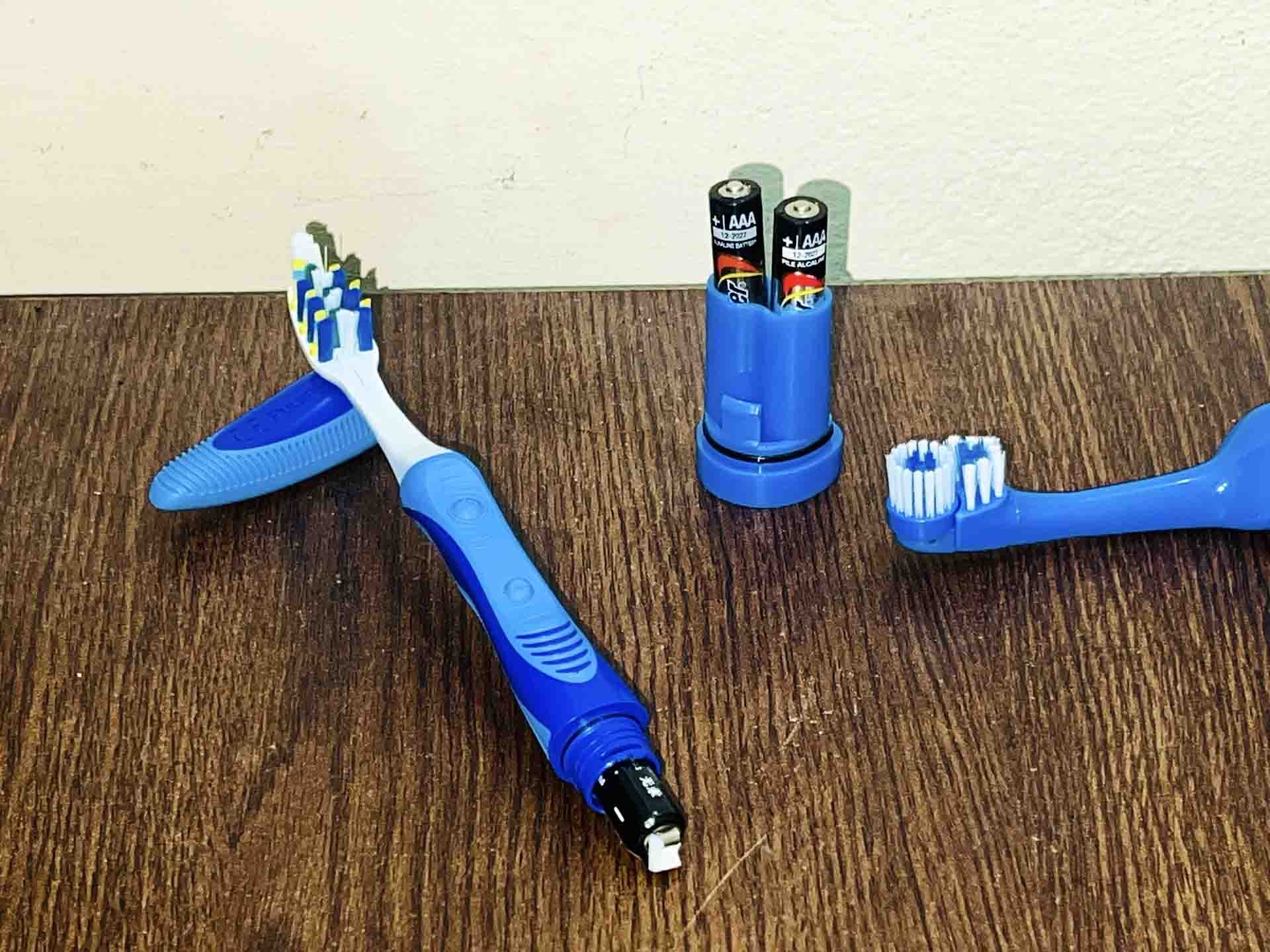I’ve always been intrigued by the variety of toothbrushes on the market. There is a toothbrush for every preference, from soft bristles to hard bristles and everything in between. But what about medium toothbrushes? What purpose do they serve?
Well, let me tell you, medium toothbrushes have some pretty impressive benefits. They effectively remove plaque and dirt, reaching every part of your mouth. Not only that but they also last longer than soft toothbrushes and can remove surface stains from your teeth.
If you’re a heavier brusher, medium bristles might be just what you need. They’re less irritating and reduce gum damage, leading to decreased bleeding. Plus, they’re an excellent option for those with sensitive teeth.
What Is A Medium Bristle Toothbrush?
A medium bristle toothbrush is stiffer than a soft toothbrush but softer than a hard one. It is hard enough to eliminate debris but soft enough that it doesn’t damage or wear tooth enamel.
However, dental professionals do not generally recommend medium or hard bristle brushes because of the damage they can do to your teeth and gums. You need to be careful with your gums when you use a medium-bristle toothbrush.
Also Read:-Are Round Toothbrush Heads Better?
6 Benefits Of Using A Medium Toothbrush
Now that you know what a medium bristle toothbrush is, let’s talk about the benefits. Although most oral health professionals suggest using a soft bristle toothbrush, you can use a medium bristle toothbrush. I have used one, and here is what I found:
1. It Removes Plaque And Dirt Effectively
Medium toothbrushes have the optimal amount of scrubbing power to clean your teeth without damaging them.
The bristles are strong enough to get rid of food particles and plaque that can cause cavities and gum disease. You can keep your teeth clean and healthy using a medium toothbrush.
2. It Reaches Every Part Of Your Mouth
Medium toothbrushes are designed to access all areas of your mouth, even the ones that are hard to reach. They can clean your back molars, tongue, and gum line, ensuring no spot is left uncleaned.
If you use a medium toothbrush, you can prevent dental problems that might arise from neglected areas of your mouth.
3. It Lasts Longer Than Soft Toothbrushes
Medium toothbrushes are more durable than soft toothbrushes because they resist wear and tear better.
The bristles do not bend or fray as easily, which means you do not have to replace them as often. By using a medium toothbrush, you can save money and reduce waste.
4. It Removes Surface Stains From Your Teeth
If you enjoy coffee, tea, or cigarettes, you might have noticed some stains on your teeth. A medium toothbrush can help you remove these stains by gently scrubbing them away. The harder bristles can polish your teeth and restore their natural whiteness.
5. It Suits Heavier Brushers Better
Some people tend to brush their teeth with more force than others, which can damage their toothbrushes over time.
The bristles can splay and lose their effectiveness, making the brushing less efficient. However, a medium toothbrush can withstand more pressure and remain effective even with a heavier brushing style.
6. Better Than Hard Bristle Toothbrush
A medium bristle toothbrush can be a better option for you in many ways. These are:
-
Less Irritating
Medium toothbrushes have firmer bristles than soft ones but are less abrasive than hard ones. For those with sensitive gums, a medium toothbrush can provide a balance between effective cleaning and gentleness to prevent irritation.
-
Reduced Gum Damage
Hard toothbrushes can be quite harsh on your gums, potentially causing them to recede over time. Medium toothbrushes, while still more firm than soft brushes, offer a less aggressive option that can help avoid gum damage while still providing efficient cleaning.
-
Decreased Bleeding
For those who experience gum bleeding when brushing with a hard-bristled toothbrush, switching to a medium brush can help decrease this problem due to its less aggressive nature. However, persistent bleeding gums can be a sign of gum disease and should be checked by a dentist.
-
Better For Sensitive Teeth
If you have sensitive teeth, a medium toothbrush can clean effectively without causing additional discomfort that hard toothbrushes can induce.
Also Read:-Does Brushing Your Lips With A Toothbrush Make Them Bigger?
Who Should Use A Medium Bristle Toothbrush?
A medium bristle toothbrush can be effective for cleaning teeth, but it should be used with care. While it can remove plaque more effectively than a soft-bristled brush, it can also be harsh on the gums and enamel if used too aggressively. Here’s who might consider using a medium bristle toothbrush:
People With Healthy Gums And Teeth
If your teeth and gums are healthy, you may use a medium-bristle toothbrush without any problems. The slightly stiffer bristles can provide a more thorough cleaning by eliminating any plaque or food particles that may have been collected over the day.
However, it is essential to handle the toothbrush gently to avoid causing gum irritation or enamel damage. Utilize moderate, circular strokes and refrain from using excessive pressure.
Plaque-Prone Individuals
If you discover that a soft-bristled toothbrush is ineffective in removing your plaque, a medium-bristled toothbrush may be helpful.
But, before making the switch, it is recommended to consult with your dentist. They may propose improved brushing methods or suggest a specific kind of toothbrush that suits your needs.
Those Whom Their Dentist Recommends
If your dentist expressly recommends using a medium-bristle toothbrush, they likely have a valid reason for doing so. It is essential to heed their recommendations and ensure you are aware of the correct brushing method to prevent gum and tooth damage.
Your dental health care regimen must include regular visits to the dentist, and a medium-bristle toothbrush may be part of your personalized dental care plan.
People With Teeth That Are Prone To Stains
A medium-bristle toothbrush might help remove surface stains more successfully if you have teeth that are prone to stains. The slightly tougher bristles can assist in removing tough stains from coffee, tea, or cigarettes.
However, it’s important to note that a medium-bristle toothbrush may not be enough to produce a pearly-white grin. Professional tooth whitening procedures and routine dental cleanings may also be necessary.
Is A Medium Bristle Toothbrush Right For You?
Suppose you want a toothbrush that perfectly balances cleaning power and comfort. In that case, a medium-bristle toothbrush might be right for you. However, it’s important to note that medium-bristle toothbrushes may not be suitable for everyone.
Although they have some benefits, personally, I find them to be too abrasive or uncomfortable. In that case, I would recommend opting for a soft bristle toothbrush. I’ve found that a soft bristle toothbrush is gentle on my teeth and gums and effectively removes bacteria and plaque.
On the other hand, I wouldn’t recommend using a hard bristle toothbrush on natural teeth for everyday use. From my experience, it can be too harsh on the gums and tooth enamel, which is something I prefer to avoid.
To know more, you can read another article on Choosing The Best: Hard Vs Medium Vs Soft Vs Extra Soft Toothbrush.
Important Factors To Think About When Buying A Toothbrush
Selecting the correct toothbrush is vital for maintaining excellent oral hygiene. With the abundance of options available today, it can be overwhelming to determine which toothbrush suits you best. Here are the key factors to keep in mind when purchasing a toothbrush:
Bristle Softness
The softness of the bristles determines how gentle or harsh the toothbrush is on your gums and enamel. Hard bristles may damage your gums and enamel, leading to sensitivity and decay.
Opt for soft bristles to effectively remove plaque without harming your oral tissues.
Head Size
The size of the toothbrush head affects how well you can reach all areas of your mouth. A large head might make cleaning the back and sides of your teeth challenging.
Therefore, opt for a toothbrush which has a small brush head for easy access to hard-to-reach spots, ensuring a thorough cleaning.
Handle Design
The handle’s design influences comfort and convenience during brushing. A good handle should fit comfortably in your hand, offering a firm grip.
Look for features like rubberized grips or flexible necks to enhance comfort and control while brushing.
ADA Approval
Look for the American Dental Association (ADA) seal of approval when purchasing a toothbrush. This ensures the toothbrush has received rigorous testing and meets ADA standards for safety as well as effectiveness. Choosing an ADA-approved toothbrush ensures you are investing in a quality product.
Electric Or Manual
Decide between an electric or manual toothbrush based on personal taste and budget. Electric toothbrushes provide powerful and consistent cleaning with features like modes and timers.
Manual toothbrushes are also effective, too, if used correctly. Consider your dental goals, budget, and comfort when choosing.
Replaceability
Regularly replace your toothbrush to maintain its effectiveness and hygiene. Worn-out, frayed, or bacteria-contaminated bristles reduce cleaning efficiency and raise infection risks.
Dentists recommend replacing toothbrushes every three to four months or earlier if bristles are damaged. Opt for toothbrushes with easily replaceable heads or bristles for convenience.
Quality And Durability
Invest in a high-quality toothbrush from reputable brands known for durability. Cheaply made toothbrushes wear out quickly, necessitating frequent replacements.
Replace your toothbrush every three to four months or sooner if bristles show signs of wear.
Price
While quality is essential, consider the price of the toothbrush. Toothbrushes are available at various price points, and you can find good quality options that fit your budget.
Investing in a high-quality toothbrush now can save money by preventing costly dental issues in the future.
Also Read:-Do Hotels Have Toothbrushes?
FAQs
After reading till now, you know the purpose of making medium toothbrushes. However, if you are not sure about anything, the following questions will aid you in clearing them:
What Are The Signs That My Toothbrush Is Too Hard?
Some signs that your toothbrush is too hard or that you’re brushing too vigorously include frayed bristles, receding gums, and tooth sensitivity. It’s important to use a toothbrush with soft bristles and to brush gently to avoid damaging your teeth and gums.
If you’re experiencing any of these symptoms, switching to a softer toothbrush and being more gentle when brushing may be a good idea.
Are Toothbrushes With More Bristles Better?
A toothbrush with angled bristles or multiple layers of bristles can be helpful in reaching difficult-to-clean areas of the mouth. However, it’s important to consider the size of the toothbrush head and choose one that is appropriate for your mouth.
When it comes to the hardness of the bristles, nearly all dentists recommend to use a toothbrush with soft or extra-soft bristles. This is because harder bristles can wear down tooth enamel over time and cause damage to the gums.
Is It OK To Use Medium Toothbrushes?
Yes, medium-sized toothbrushes can be a good option for those who want a more gentle approach to brushing their teeth. The bristles are firm enough to remove plaque and food particles from the teeth but not so harsh that they harm the enamel.
However, it’s important to make sure you don’t over-brush or over-exert the bristles to avoid damaging your teeth and gums.
Conclusion
Medium bristle toothbrushes offer a middle ground between soft and hard bristles, catering to individuals with unique oral health requirements. It can be a valuable tool for maintaining good oral hygiene for individuals with specific dental needs. It effectively removes plaque and surface stains and reaches all parts of the mouth.
However, using medium toothbrushes with caution is essential, especially if you have sensitive gums or teeth. For the majority of people, a soft bristle toothbrush is still the recommended choice.
Also Read:-Why My Teeth Don’t Feel Clean Electric Toothbrush?

